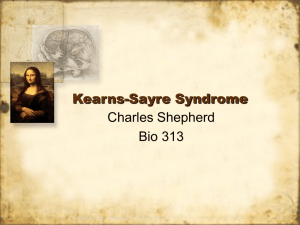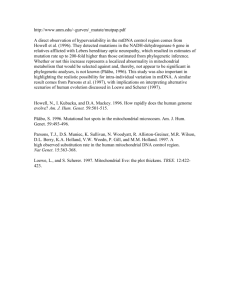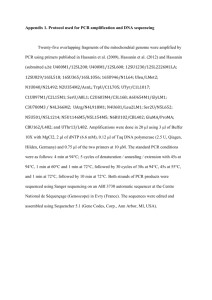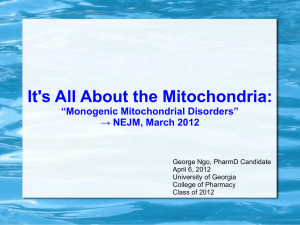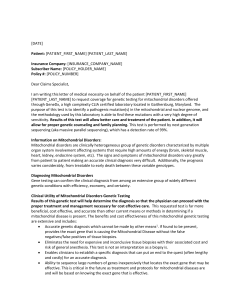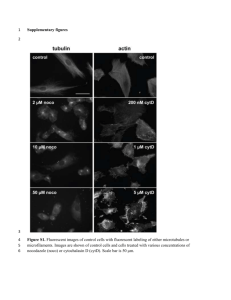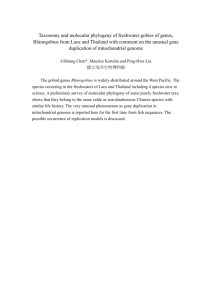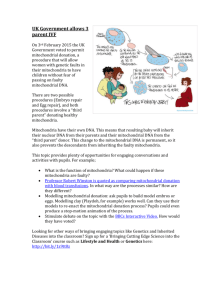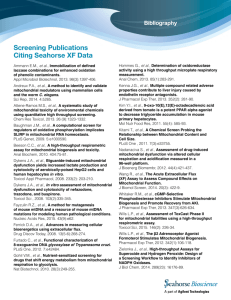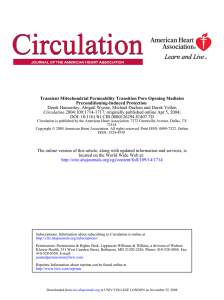– MITOCHONDRIAL DISORDERS REVERSIBLE/TRANSIENT INFANTILE RESPIRATORY CHAIN DEFICIENCY
advertisement
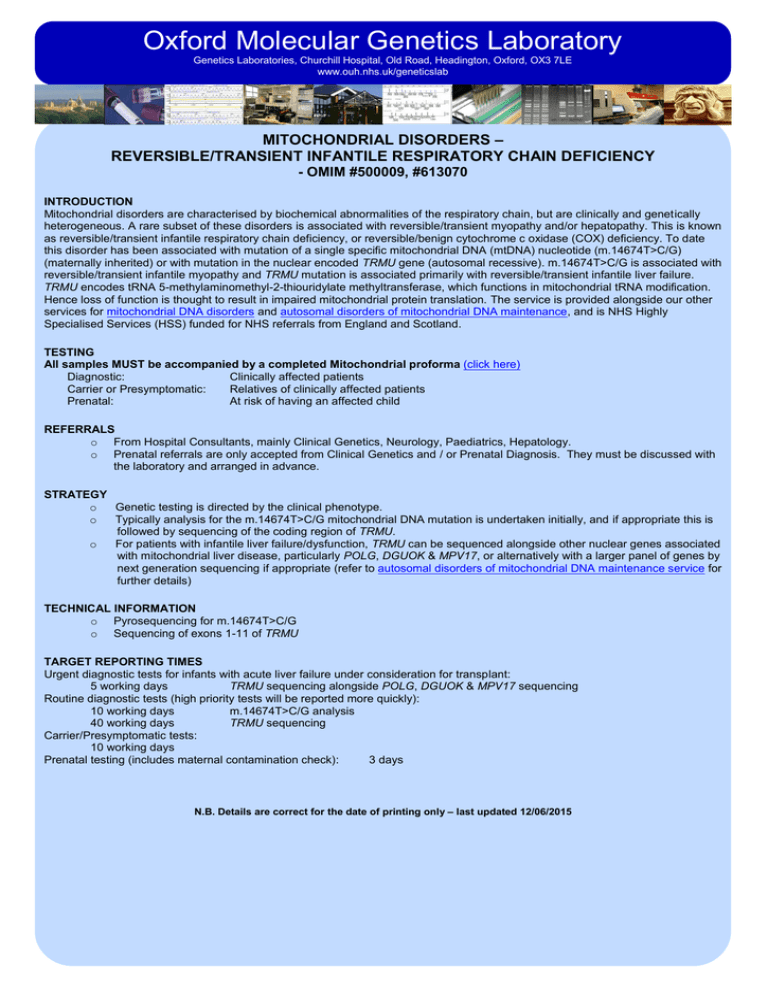
Oxford Molecular Genetics Laboratory Genetics Laboratories, Churchill Hospital, Old Road, Headington, Oxford, OX3 7LE www.ouh.nhs.uk/geneticslab MITOCHONDRIAL DISORDERS – REVERSIBLE/TRANSIENT INFANTILE RESPIRATORY CHAIN DEFICIENCY - OMIM #500009, #613070 INTRODUCTION Mitochondrial disorders are characterised by biochemical abnormalities of the respiratory chain, but are clinically and genetically heterogeneous. A rare subset of these disorders is associated with reversible/transient myopathy and/or hepatopathy. This is known as reversible/transient infantile respiratory chain deficiency, or reversible/benign cytochrome c oxidase (COX) deficiency. To date this disorder has been associated with mutation of a single specific mitochondrial DNA (mtDNA) nucleotide (m.14674T>C/G) (maternally inherited) or with mutation in the nuclear encoded TRMU gene (autosomal recessive). m.14674T>C/G is associated with reversible/transient infantile myopathy and TRMU mutation is associated primarily with reversible/transient infantile liver failure. TRMU encodes tRNA 5-methylaminomethyl-2-thiouridylate methyltransferase, which functions in mitochondrial tRNA modification. Hence loss of function is thought to result in impaired mitochondrial protein translation. The service is provided alongside our other services for mitochondrial DNA disorders and autosomal disorders of mitochondrial DNA maintenance, and is NHS Highly Specialised Services (HSS) funded for NHS referrals from England and Scotland. TESTING All samples MUST be accompanied by a completed Mitochondrial proforma (click here) Diagnostic: Clinically affected patients Carrier or Presymptomatic: Relatives of clinically affected patients Prenatal: At risk of having an affected child REFERRALS o From Hospital Consultants, mainly Clinical Genetics, Neurology, Paediatrics, Hepatology. o Prenatal referrals are only accepted from Clinical Genetics and / or Prenatal Diagnosis. They must be discussed with the laboratory and arranged in advance. STRATEGY o Genetic testing is directed by the clinical phenotype. o Typically analysis for the m.14674T>C/G mitochondrial DNA mutation is undertaken initially, and if appropriate this is followed by sequencing of the coding region of TRMU. o For patients with infantile liver failure/dysfunction, TRMU can be sequenced alongside other nuclear genes associated with mitochondrial liver disease, particularly POLG, DGUOK & MPV17, or alternatively with a larger panel of genes by next generation sequencing if appropriate (refer to autosomal disorders of mitochondrial DNA maintenance service for further details) TECHNICAL INFORMATION o Pyrosequencing for m.14674T>C/G o Sequencing of exons 1-11 of TRMU TARGET REPORTING TIMES Urgent diagnostic tests for infants with acute liver failure under consideration for transplant: 5 working days TRMU sequencing alongside POLG, DGUOK & MPV17 sequencing Routine diagnostic tests (high priority tests will be reported more quickly): 10 working days m.14674T>C/G analysis 40 working days TRMU sequencing Carrier/Presymptomatic tests: 10 working days Prenatal testing (includes maternal contamination check): 3 days N.B. Details are correct for the date of printing only – last updated 12/06/2015
